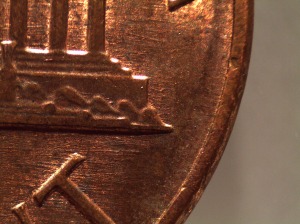Through exhaustive soul-searching, I learned that I had an obsession with improving my social skills, analyzing social dynamics, studying attraction between people, and helping others. So it made sense to try to become a Social Skills coach.
PUA. It stands for Pick-up Artist and is used to represent the community and culture related to seducing woman. If I was going to master my social skills and provide social skills coaching, this seemed like a reasonable place to start. There was one problem. I was in a long-term relationship and happy. I needed to find an alternative to becoming a PUA. I had the natural inclination to the field and first-hand experience on overcoming poor social habits. That’s when I figured out a solution, I would become a professional wingman.
What’s your favorite character from a movie? Who is mine? Rusty Ryan (played by Brad Pitt) from Ocean’s 11. This movie is about an eccentric group of characters who get together to pull off a complex casino heist. Rusty, was Danny Ocean’s (played by George Clooney) right-hand man. While Danny Ocean focused on the big picture ideas and was responsible for the general plan, Rusty was responsible for the tiny specific details of the plan and was the one everyone turned to when problems arose. He was organized, likable, competent, and trustworthy. He made sure everything was in place and frequently called out Danny Ocean whenever the plan was in jeopardy. Thanks to Rusty Ryan, I now thought being a right-hand man was cool.
A Wingman is generally a person that provides another person support when approaching potential partners. Being a wingman was the social interaction equivalent of Rusty Ryan.
Being a wingman is not a simple task. A good wingman is expected to posses a certain skill-set, have a certain mentality, be very knowledgeable in social dynamics, and was responsible for completing a lengthy list of duties. A good wingman should never be too inexperienced or he could hold his partner back and should always be of equal or greater knowledge. Having made progress in my social skills wasn’t enough, I had a lot of research and practicing to do.
I started on 4/5/15. I researched all PUA literature, online videos, and forums. I decided I would read 4 books that were generally regarded as the foundations of the PUA community: The Game by Neil Strauss, How to make friends and influence people by Dale Carnegie, Influence: the psychology of persuasion by Robert Cialdini, and Magic Bullets by Nick Savoy. I chose to pick introductory books and nothing specialized because through its years of existence, different schools of thought had emerged in the PUA community. My plan was to focus on a specific theory of seduction once I had a respectable understanding of the field. I started following well-known PUAs on Twitter, Reddit, and YouTube. I also went on PUA forums and requested to meet with local PUAs or anyone interested in the field. I wanted to have a partner to explore my ideas, motivate me, and maybe provide mentoring.
For the next 2 weeks, I treated Pick Up like my full-time job. I watched videos at work, practiced on girls when I was commuting, and read all night at home. The more I learned, the more I thought about it.
2 weeks later, I was on my second book, had scheduled a night out with another PUA newbie I met on some forums, and was enrolled in improv classes. I had reached out to several Miami-based dating coaches and had scheduled meetings with them. My goal was to get part-time work with them in order to get a foot in the field or at least learn from them.
Those who truly want something don’t just sit around expecting to get it, they go and get it.
